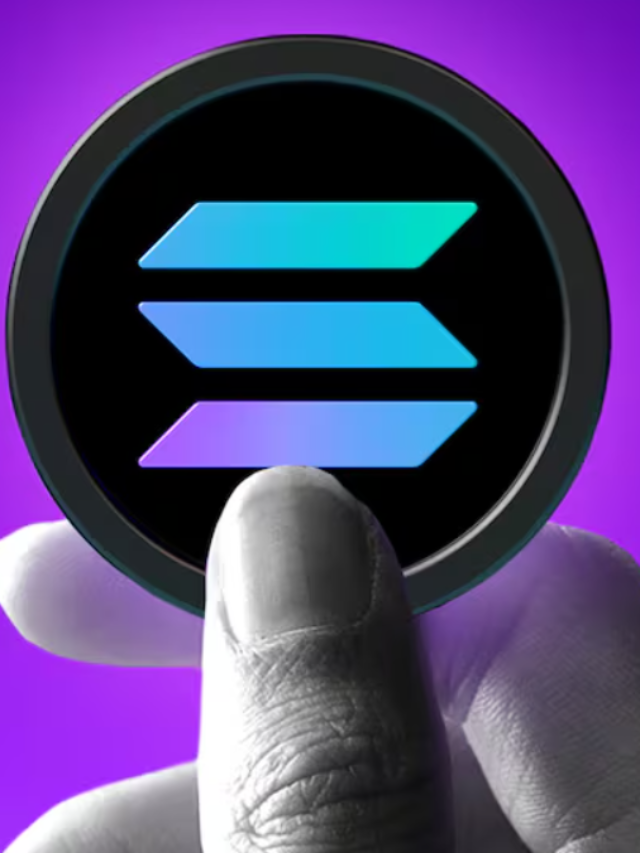The emergence of cryptocurrency has raised the need for effective and safe storage of digital assets. Just as conventional wallets store physical money, so cryptocurrencies such as Bitcoin and Ethereum are stored in cryptocurrency wallets. But these wallets are something more than just simple storage solutions. They come in two major types: hot wallets and cold wallets. All of them have their own advantages and disadvantages, and which to use depends on the particular needs of each user. We will explain here what cryptocurrency wallets are and the difference between hot wallets and cold wallets.

What is a cryptocurrency wallet?
cryptocurrency wallets A cryptocurrency wallet is a device through which you are able to store, send, and receive digital currencies. It does not actually contain your cryptocurrency, as a physical wallet would contain cash. It saves the private and public keys that give you access to your digital assets on the blockchain. These keys are of the utmost importance since they keep your cryptocurrency safe from unauthorized actions and let only you control and access it.
Why Do You Need a Cryptocurrency Wallet?
Cryptocurrency wallets are something any owner of digital currencies can’t live without. Without a wallet, there would be no way of accessing, sending, or receiving your coins. It is essentially a key to your virtual vault. Whether casual or extensive user, and sometimes trader, the choice of cryptocurrency wallet an individual uses plays a huge role in how safe and accessible funds are.
Types of cryptocurrency wallets
Broadly speaking, there are two major types of cryptocurrency wallets, though there are many varieties: hot wallets and cold wallets. Let’s deep dive into each one of those.
Hot Wallets
Hot wallets are web wallets that are online on the internet. They are rather more available and allow you to manage your cryptocurrency in less time. Most hot wallets are accessible through their applications or software, which you install on your smartphone or laptop. If you want to trade cryptocurrency more frequently, then probably a hot wallet is ideal for convenience.
Examples of Hot Wallets: Well-known wallets include Coinbase, Trust Wallet, and MetaMask.
How Hot Wallets Work: Since these wallets are always online, transactions are completed swiftly. You can send and receive cryptocurrency in a matter of seconds. Due to easy accessibility, day traders and frequent users mostly use hot wallets.
Problems with the Security of Hot Wallets: The main disadvantage of hot wallets is that they can easily be hacked. As long as they are online, meaning connected to the internet, there is a risk of cyberattacks or malware. For better security enhancements in hot wallets, it is advisable to enable 2FA and store only a little cryptocurrency.
Cold Wallets
cryptocurrency wallets The cold wallet, otherwise termed the offline wallet, does not connect to the internet. That somehow makes it a great deal more secure than hot wallets but less convenient to use daily. Cold wallets would be the preferred choice for users who would like to store large volumes of cryptocurrency for an extended period.
cryptocurrency wallets Examples of Cold Wallets: The most widely used cold wallets are hardware wallets, which include Ledger and Trezor. Paper wallets, with the writing or printing of your private key, are a form of cold storage.
How Cold Wallets Work: The cold wallet keeps your private keys offline, making them virtually hack-resistant. You can also store your wallet in a well-protected place, like in a safe or vault. In case you want to access your funds, you can easily connect your cold wallet to a computer and transfer the cryptocurrency.
Cold Wallet Security: As mentioned above, cold wallets are the safest place for your cryptocurrency. Of course, they are not foolproof. If you happen to misplace your hardware or paper wallet, or even if your hardware wallet gets damaged, you actually run the chance of losing access to your cryptocurrency forever.
Hot vs. Cold Wallets: Which Is Right for You?
It basically comes down to how you would use your cryptocurrency and how much security you want. With this, you have the option of using either a hot wallet or a cold wallet.
Hot Wallets: Best for Frequent Users
Hot wallets are ideal for those who need instant access to their cryptocurrency. If you are actively trading, then the ease and convenience of a hot wallet make it the better choice. Remember, however, that with ease comes risk. You should store only small amounts in a hot wallet to minimize potential loss from a cyberattack.
Cold Wallets: Ideal for the Long-Term Investor
Cold wallets work for those who look to hold large amounts of cryptocurrency over a long period. Since they are offline, wallets like these have much better security. If you will not need regular access to your funds, a cold wallet gives you the peace of mind that your assets are safe from every online threat.
Can You Use Both?
This combination of hot and cold wallets works great for most cryptocurrency investors. You can use a hot wallet for everyday transactions and a cold wallet for long-term storage. This way, you are able to utilize the ease of a hot wallet while taking in the security of the cold wallet.
How to Choose the Right Cryptocurrency Wallet
Now that you know the difference between hot and cold wallets, how do you go about choosing which wallet is best for you? Here are several aspects you would want to consider:
1. Security
If security is your number one concern, then cold wallets are the way to go. For example, hardware cold wallets, like Ledger and Trezor, maintain much better security of digital assets. Conversely, if you are comfortable managing the associated risks with online wallets, you might go for hot wallets such as Trust Wallet or MetaMask.
2. Accessibility
Do you need to access your cryptocurrency frequently? If so, it will be more convenient to use a hot wallet. Cold wallets will be a bit inconvenient when you have to make regular transactions, since every time you need to connect them with your device manually.
3. Cost
cryptocurrency wallets Cold wallets, particularly hardware wallets, do cost some money; you will have to buy a physical device for anywhere between $50 and $150. Hot wallets generally do not cost a dime to use. Therefore, if the tightness of your budget is an issue, hot wallets may be more favorable to you.
4. Cryptocurrency You Own
Some wallets support only certain types of cryptocurrency. Ensure that your wallet supports the coins that you are going to store inside. For example, MetaMask is one of the most widely known and used for Ethereum-based tokens, while hardware wallets support an impressive range of coins.
Conclusion
Both hot and cold cryptocurrency wallets come with their own advantages and disadvantages. Perhaps the best rule is simply to consider your needs and select the wallet—or combination of wallets—that best suits your way of life. If you are trading frequently, a hot wallet can probably suit you best. On the other hand, if you want to store your currency for a longer period of time, then cold wallets offer the most peace of mind. In either case, security and accessibility should be top considerations when you think about your management of digital assets.




















